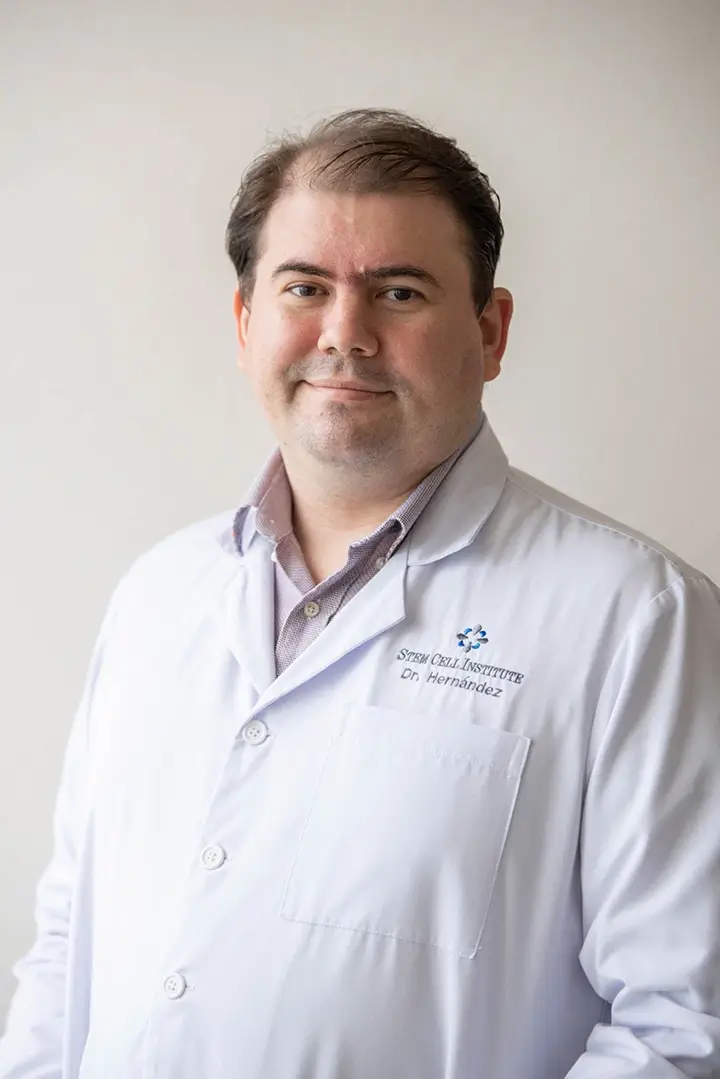After participating in a small clinical trial at Northwestern University, Edwin McClure seems to have recovered from multiple sclerosis (MS). Conducted on 21 participants and led by Dr. Richard Burt, the clinical trial involved treating the MS patients with their own adult stem cells. The only drawback of the study, however, was the use of chemotherapy to destroy each patient’s immune system prior to the adult stem cell therapy. Nevertheless, patients such as Mr. McClure have shown dramatic improvement.
Diagnosed with MS four years ago at the age of 18, Edwin McClure underwent a regimen of conventional MS medication but without any results. According to Mr. McClure, “I would get fatigued. I couldn’t deal with the heat. I had really bad balance.” Then he heard about the trial being conducted at Northwestern University in Chicago, and decided to participate. Now, he says, “I really don’t feel like I have multiple sclerosis anymore.” In regard to the chemotherapy, however, he adds, “It was rough.”
Approximately 400,000 people in the U.S. and 2.5 million people globally are estimated to suffer from MS, which is a degenerative, autoimmune, demyelinating disease of the central nervous system, the precise causes of which remain unknown, and a precise cure for which has not previously existed. According to Dr. Burt, however, “Well now for the first time in battling MS, I think you can say there’s a study that’s shown we’ve turned the tide against the disease.”
In actuality, other doctors have already had success in treating patients with multiple sclerosis, but without the brutal and deliberate destruction of the immune system with radiation. As previously reported on this website, prior to receiving the autologous stem cell transplantation in the clinical trial led by Dr. Burt, each patient also underwent immunological myeloablation, in which radiation is employed to destroy the patient’s immune system. While such a procedure had previously been considered a necessary part of the therapy, even though it exposes the patient to potentially life-threatening risks, today an increasing number of doctors are questioning the logic and necessity of subjecting their patients to deliberate immune destruction, and with valid scientific reason. In a publication that appeared over two years ago, in the Journal of Translational Medicine in January of 2007, Dr. Neil H. Riordan et al. posed the following question: “…in patients who are not suffering from a disease that is associated with an aberrant bone marrow such as hematological malignancies or immunological dysfunctions, how is it justifiable to subject them to the high levels of morbidity and mortality associated with immune suppression?” Dr. Riordan and his team of scientists then examined compelling evidence which strongly indicates that pre-transplant immune suppression is unnecessary for many types of autologous hematopoietic cell therapies and even for some allogeneic therapies that utilize “universal donor” cells such as mesenchymal stem cells and the CD34+ stem cells that are found in umbilical cord blood, and for which immune rejection is not even a concern. As Dr. Riordan and his colleagues wrote in their 2007 paper in a section that is subtitled, “Mesenchymal stem cells do not need myeloablation for efficacy”: “Currently there are several ongoing clinical trials in Phase I-III using ‘universal donor’ mesenchymal stem cells in non-conditioned recipients of Crohn’s disease, GVHD (graft-versus-host disease) and myocardial infarction. Although these cells are bone marrow expanded mesenchymal cells, the superior proliferative potential of cord blood mesenchymal cells may allow them not only to escape immune destruction, but also to expand in vivo and mediate therapeutic effects superior to those derived from bone marrow. The fact that regulatory agencies have allowed advancement of ‘off-the-shelf’ universal donor mesenchymal stem cells supports the numerous reports of clinical efficacy in an allogeneic setting.”
Nevertheless, for clinical trials such as those conducted by Dr. Burt at Northwestern University, the adult stem cell therapy offers tangible improvement – at least for those patients who survive the life-threatening destruction of their immune systems from radiation. One can only conclude, therefore, as has already been demonstrated by other doctors at other clinics, that patients would exhibit even greater and faster improvement if they did not have to recover from the deliberate destruction of their immune systems prior to receiving the stem cell therapy, and also if the stem cell therapy would utilize the “superior proliferative potential” of the “immune privileged” adult stem cells that are found in umbilical cord blood.
Edwin McClure and his mother, Bernice, were featured today on the Early Show with CBS television correspondent Debbye Turner Bell.

